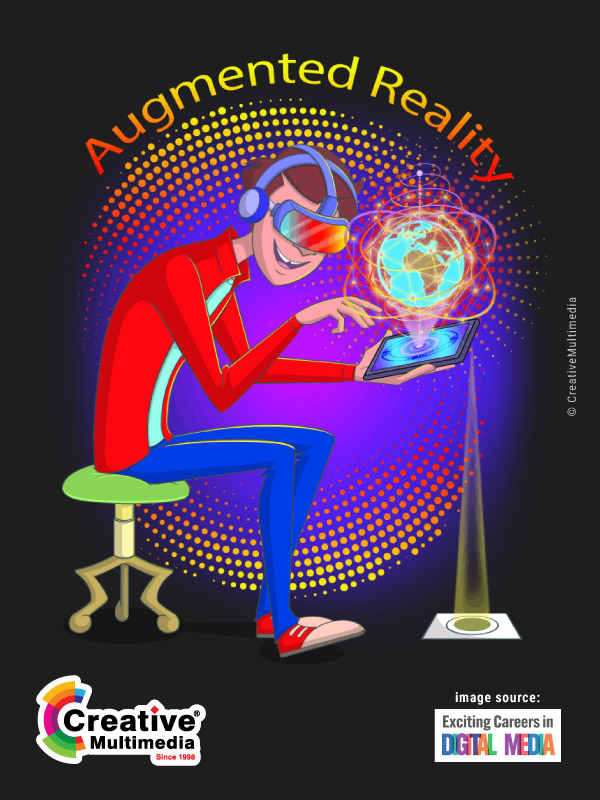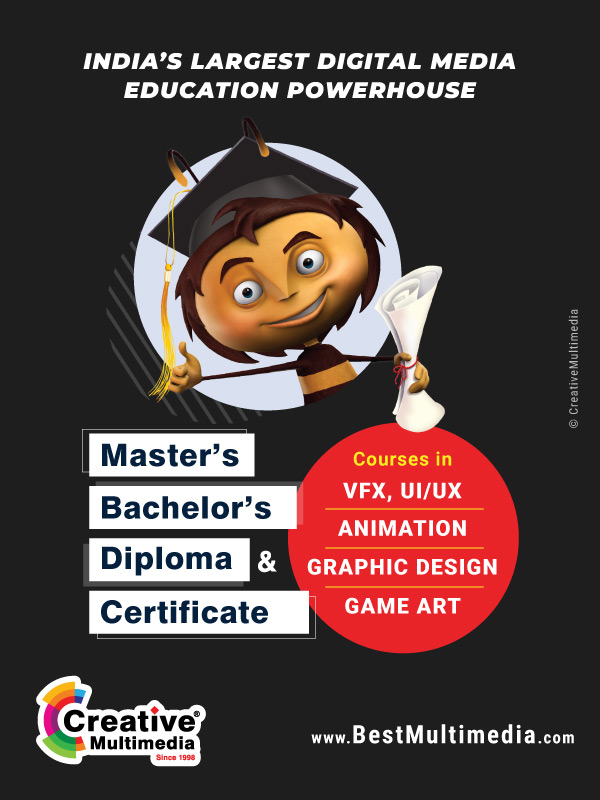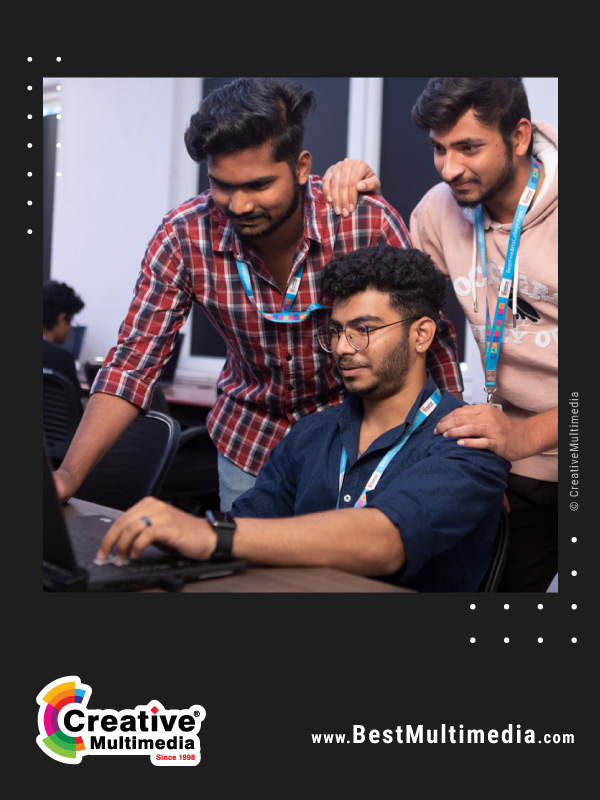What is Augmented Reality (AR)?
Do the top multimedia institutes in India and other colleges/academies offer AR courses and related courses in VFX and media and entertainment?
AR specialists are responsible for developing applications that enhance real-world environments, serving various user-specific purposes, predominantly in entertainment and training. Leveraging their creative and technical expertise, they craft interactive AR experiences and deploy AR applications across diverse platforms and devices, with a particular focus on mobile phones. In essence, AR is employed to overlay digital content onto the physical world.

AR specialists integrate video, graphics, GPS overlays, and other digital elements that dynamically respond to changes in the user’s environment, typically related to movement. For instance, in Pokémon GO, the AR application utilizes the phone’s camera to superimpose digitally created Pokémon characters onto the real-world view. Snapchat also exemplifies AR, where users employ smart filters to embellish and animate photos on the go. AR specialists find employment not only in gaming companies but also in various sectors such as training, advertising, art, tourism, architecture, education, and healthcare.
Getting into AR typically begins with relevant short term or long term courses in media and entertainment. A career in AR means getting into a whole set of skills and competencies, particularly, proficiency in geometry, 3D space, and linear algebra; non-programming skills such as 3D modeling and sound design; familiarity with AR technologies and the processes involved in augmenting the real world; understanding of user interface (UI) and user experience (UX) design; and programming skills and expertise in relevant software development kits.
Preferred qualifications to get in to AR include a background in engineering, design, audio, or related disciplines. Coursework covering applied mathematics, spatial processing, and design is advantageous. Internships with established companies offer valuable work experience and application-specific knowledge, involving development tools (C#, Unity3D), coding (Java, C, or C++), and AR platforms/SDKs (Unity, Unreal Engine, Amazon Sumerian, Google ARCore, ARKit, and Vuforia). Asset creation using tools like Blender is also relevant. To gain these skills and required level of expertise, students typically enroll for VFX classes in Hyderabad and other top cities in India where established VFX institutes offer structured training program.
Tips to get a job: Build a robust portfolio by dedicating ample time to AR projects. Create an AR application that serves as a showcase for prospective employers. Initiate contact with companies in the field, expressing your interest in potential opportunities. Regular communication with contacts can open doors to job opportunities.

Career Progression: The career path in AR is not standardized, given its status as an emerging discipline. AR, along with immersive technologies like virtual reality (VR) and mixed reality (MR), falls under the umbrella term ‘Extended Reality’ (XR). A spectrum of XR roles exists across development, software design, 3D art, design architecture, system validation, and product management.

AR is an evolving field with new developments influencing the work space significantly. New job roles are emerging each day in line with trends. These are the typical job roles in AR: Animator/Sound Artist specializing in AR, AR Content Developer, AR Content Strategist, AR User Experience Designer, AR Community Manager, and AR Project Manager
The salary for a fresher falls in the range of Rs. 25,000 and Rs. 40,000 per month. Seniors with 5+ years experience can expect anywhere between Rs. 80,000 and Rs. 1,20,000+ per month. While there are many factors such as the caliber of the student and the training institute that come into play w.r.t. the salary, students who receive high-quality training at the finest institutes and top diploma colleges in India tend to have an edge over their peers.
